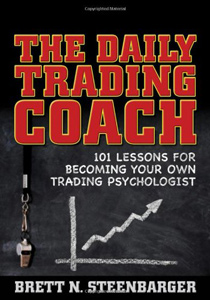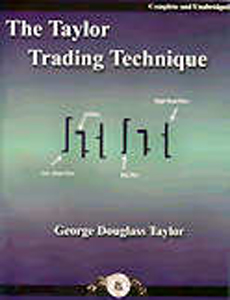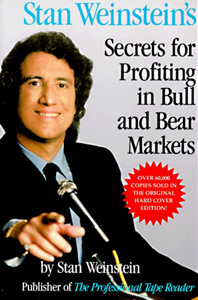Random Walk From a Trader's Perspective

Further Reading
There is a book out there about "Random Walk Theory". I haven’t read anything about it but I would presume that the book would shoot down any prospect of a predictable market theorem.
I was at a summit recently and I was discussing with one fellow about trading the markets. He was in the Random Walk school of thought. He believed that the markets were really truly random. But is that really true? If it were random, how can traders possibly extract a living out of the market? How can traders use tools like technical and fundamental analysis to a certain extent predict future movements of the market? (Actually, “predict” isn’t a good word – really I believe trader’s are weighing up the odds whenever they use technical or fundamental analysis.
His explanation was simple. The market IS in a market loop but in the loop there is feedback. Pull back a second. Feedback? For those with an engineering or mathematical background would understand this concept. The market is the system – it is the black box, it is the equation. The world, the news (economic data, company news – i.e. the fundamental), market trends (open and closes, etc – i.e. technical analysis) are the feedback.
Feedback changes the system. The system by itself is random, but with the feedback loop, the system is influenced in a way in which trader’s can take advantage of trending or “predictable” economic situations.
The book A Random Walk Down Wall Street, by Burton Malkiel will definitely be on my future reading list.
- How to Trade Forex and Gold Options
- How to Trade the Gold Price and Profit!
- Forex Trading the EUR/USD Pair € EURO and $ US Dollar
- How to Trade Stock Market Indices S&P500
- How to Trade Crude Oil
- Forex Trading Psychology
- What Are Broker Recommendations?
- Free Tickets to Trading & Investing Seminar & Expo ($18) Brisbane 2013
- Stock Calc App
- All About Warrants
- Introduction to Exchange Traded Funds
- Introduction to Exchange Traded Funds: Features
- Introduction to Exchange Traded Funds: Domestic ETFs
- Introduction to Exchange Traded Funds: International ETFs
- Exchange Traded Commodities
- Australian Stock Scan
- Australian Online Share Trading
- List of Trading Books
- Interesting Thoughts about the Australian Dollar
- What's the Meaning of Hawkish?
- Do You Know How To Use the P/E Ratio
- Trading, Religion and Politics - Do They Have Anything in Common?
- Shares that are Volatile that Double and Half in the Short Term
- Telstra (TLS) T3
- Margin Call by E-mail
- The Cost of Holding a Position
- Lack of Disclosure: Compensation from ASX Listed Company
- Unrealistic Returns and Benchmarks
- CMC Markets Down
- Quality versus Quantity Forex Trading
- Woolworths 1H Sales $30.7bn up 3.2%
Date added 31-01-2013 - ASIC Fines CommBank's CommSec
Date added 25-09-2012 - Industry Super Network Calls to Ban High Frequency Trading (HFT)
Date added 22-09-2012 - NAB Launches Online Share Trading Platform
Date added 19-09-2012 - Reserve Bank of Australia Says 23 Countries Holding AUD
Date added 18-09-2012 - Australia Post Digital Mailbox
Date added 10-09-2012 - Winners and Losers of Trading for Week 2
Date added 16-01-2012 - 2012's First Week of the Best and Worst Traded Stocks
Date added 09-01-2012 - 2011's Last Best and Worst Traded Stocks
Date added 05-01-2012 - Best and Worst Pre-Christmas Traded Stocks
Date added 30-12-2011 - Trading Winners and Losers for Dec. 12-16
Date added 19-12-2011 - Best and Worst Traded Stocks for Dec. 5-9
Date added 13-12-2011 - Top 3 Best and Worst Traded Stocks
Date added 05-12-2011 - ASX Glitch Trading Halt
Date added 27-10-2011 - Worst Trade Stocks (and the Best)
Date added 06-08-2011
Top 150 Public Companies Listed on the Australian Stockmarket as at 29/05/2009
- BHP Billiton
- Westpac Banking Corporation (WBC)
- Commonwealth Bank of Australia (CBA)
- National Australia Bank (NAB)
- Telstra (TLS)
- ANZ
- News Corporation (NWS)
- Woolworths Limited(WOW)
- Woodside Petroleum Limited (WPL)
- Rio Tinto
- Westfield Group (WDC)
- Westfarmers Limited (WES)
- QBE Insurance
- CSL
- Newcrest Mining Limited (NCM)
- Origin Energy Limited (ORG)
- Santos Limited (STO)
- AMP Limited (AMP)
- Macquarie Group (MQG)
- Foster’s Group Limited (FGL)





Tossing a coin is random
Submitted by George Polizogo... on 11 March, 2008 - 10:07Tossing a coin is random isn’t it? Assuming the coin is perfect, and that the tosser isn’t influencing the coin in any way, the probability of the coin landing on either heads or tails is 50/50. Or is bet speak 1:1.
But go ahead. Toss a coin a series of times and tabulate whether you get heads (H) or tails (T). You will find that every now and again there is a series of heads or a series of tails.
I haven’t read the book (yet) but is this phenomenon a part of random walk theory?
This is not a great
Submitted by Anonymous (not verified) on 26 March, 2008 - 05:53This is not a great explanation.
Share prices are said to follow a random walk because no piece of information that you possess now can be used to predict changes in value in the future.
Why not? Because as soon as any information about the share becomes known, including forecasts of expected future profits for example, it is immediately priced into the share now. That's why you shouldn't just buy shares in a company because it is a great company. The market already knows it is a great company and has already priced this into the share price, meaning there is no reason to expect the price to go up further in the future.
Well I personally did not
Submitted by Share Trading on 26 March, 2008 - 07:46Well I personally did not agree with his explanation of the "random walk theory" from his perspective.
That's why I'm a trader. I believe that the markets aren't random.
There is a confusion here -
Submitted by Anonymous (not verified) on 29 March, 2008 - 22:17There is a confusion here - if a share price is said to follow a random walk it doesn't mean its current value is actually random (in the sense that it is not based on anything)- it just means that its value in the future is unpredictable.
There is a reason why a share price is at a certain level at any given point in time - predictions of future profits, macro economic conditions etc. no one doubts that - the current share price is not random. But the point is that the future share price is not predictable because all available information about future conditions, future profits etc. has already been included in the share price now. The only thing that can therefore change the market's valuation is NEW information. And when that new information comes, then the share price will change almost instantaneously (depending on how efficient the market is). So the theory is that you can't predict changes in advance because you don't know what the new information will be - you have to wait until it actually arrives, and by then its too late to make a prediction - the market changes straight away...